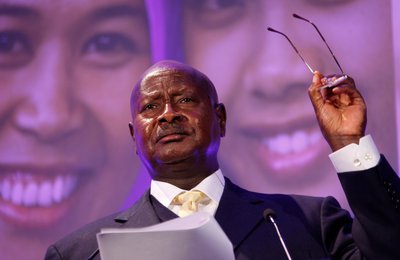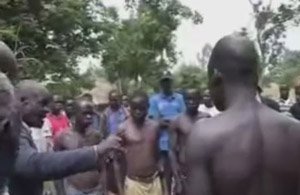The Opposition Candidates in Uganda have called for the postponement of the forthcoming presidential and general elections until Voter’s cards are issued to over four million newly-registered voters to avert a possible crisis. This call was made at a joint press conference held in Kampala addressed by four opposition candidates.
Uganda holds crucial Presidential and Parliamentary elections in three weeks time on February 18th 2011. The election is being regarded as one of the most hotly contested multi-party elections ever; with campaigns well underway. Eight Presidential candidates: Yoweri Museveni of the ruling National Resistance Movement (NRM); Dr. Kizza Besigye –Forum for Democratic Change (FDC) and a candidate for the largely fragmented Inter-party Coalition (IPC); Norbert Mao –Democratic Party (DP); Olara Otunu of Uganda People’s Congress (UPC); Betty Olive Kamya-the only female Candidate and leader of the Uganda Federal Alliance (UFA); Dr. Abed Bwanika of People’s Development Party (PDP); Jaberi Bidandi Ssale of the People’s Progressive Party (PPP) and Samuel Lubega-an Independent, are currently traversing the country asking for votes in what has been largely a peaceful but not uncontroversial campaign.
The Opposition candidates argued that the absence of voters cards; proliferation of ghost polling stations; a bloated voters register; multiple registration and with foreigners and under-age voters preparing to participate, the elections won’t be free and fair. They have implored the government and the election commission to postpone next month’s elections until all voters have verifiable voters’ identification cards because the current voters register is 'fatally flawed'.
This call for postponement came barely a week after the FDC, a leading opposition party, sued the electoral body, seeking a declaration by court to compel the body to issue all newly registered voters with voting cards. The ruling NRM party had previously rejected the call for postponement decrying it as a delay tactic. The electoral body admitted its inability to issue new voter cards before the polling dates but insisted that voting cards are not a legal requirement for an election. The new electoral law permits a voter to simply prove his or her name and photograph. However, there are wide-spread allegations of voter bribery and intimidations by security agents, including a controversial payment of about twenty million shillings (about $9,000 USD) to Members of Parliament (MPs) for allegedly passing a supplementary budget. The supplementary budget was opposed by independent MPs and those from the opposition because it was alleged to constitute additional campaign funding to the ruling party.
What is laudable is that even though the playing field appears unevenly favouring the ruling NRM candidates, the contending parties and the electorate have resisted temptations to resort to violence and continue to urge the government and the EC to ensure a peaceful and legitimate electoral process. The questions therefore are; given the prevailing circumstances: is Uganda ready to organise a peaceful legitimate election come February 18th or should the election be postponed? What alternative credible measures should be put in place to ensure that only legitimate voters vote without voting cards, given that Uganda has no national Identification cards and only a few people hold passports?
Stephen Oola, Uganda Local Correspondent. 25 January 2010









